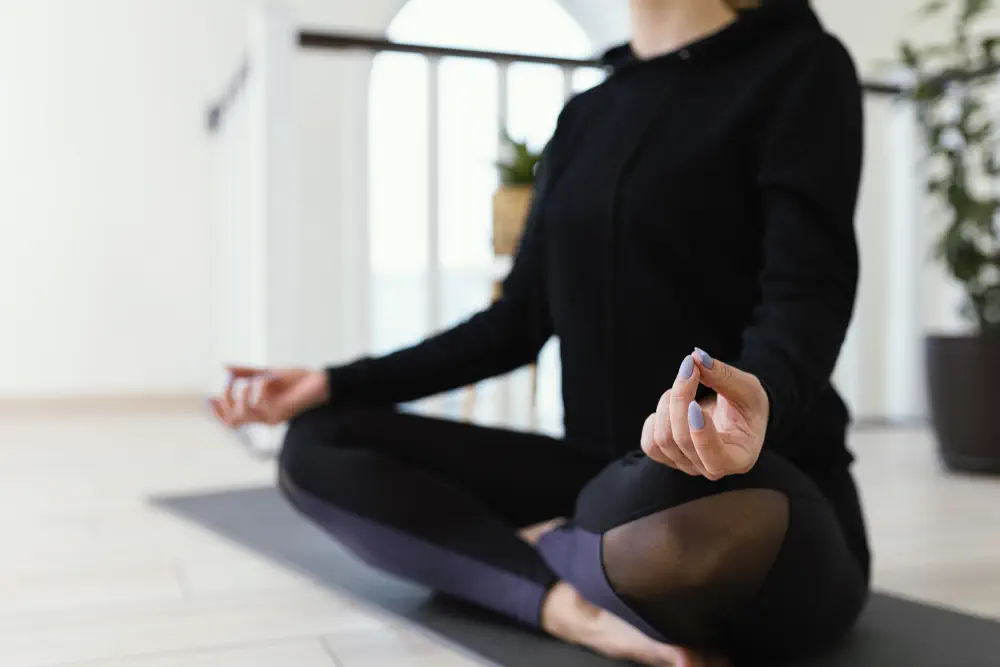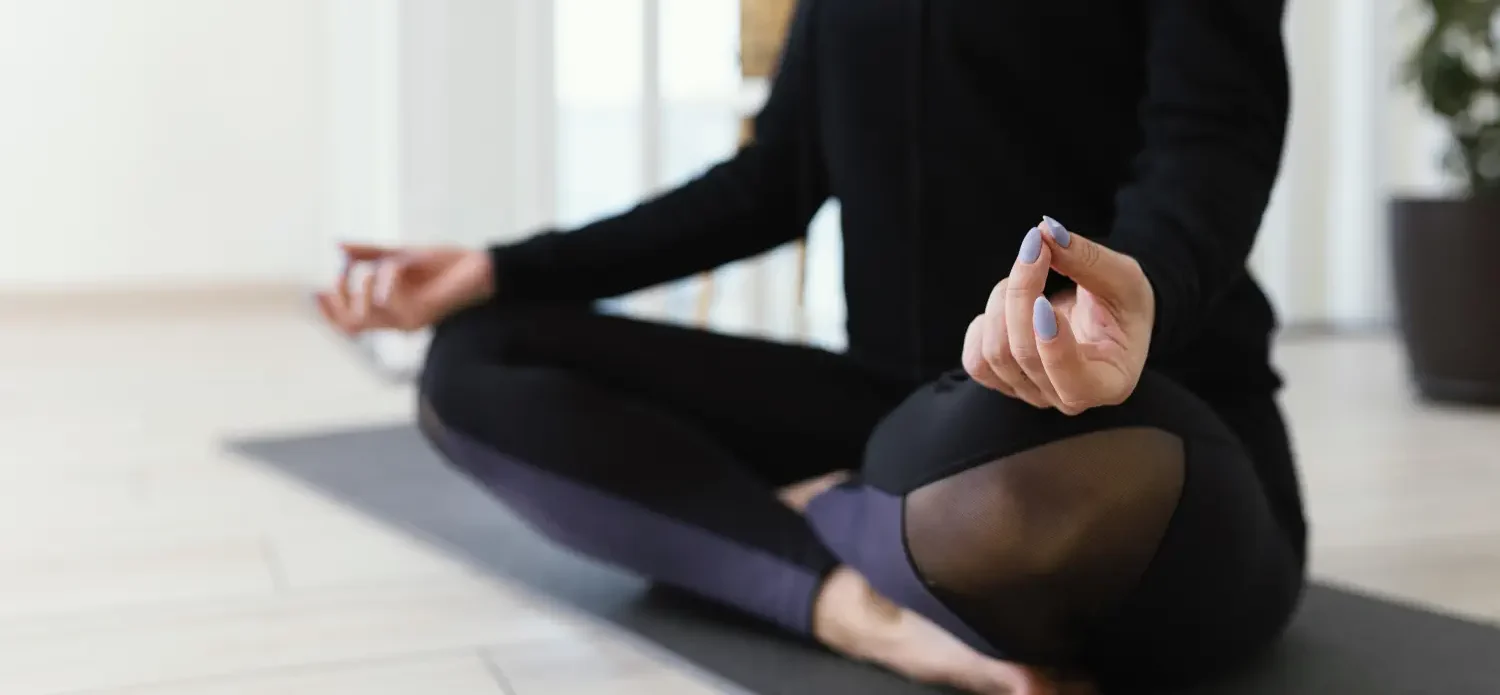We offer medical detox and multiple addiction treatment options in our
luxury treatment centres in Port Hope, Cobourg, and Ottawa.
Does Nyquil Help You Sleep? Understanding Its Effects
Almost 40% of Canadian adults face difficult sleep episodes throughout their lives, with about one in seven battling chronic insomnia. Desperate for rest, many reach for over-the-counter solutions, with NyQuil frequently becoming their night time companion. But does using a cold and flu medication for Nyquil sleep purposes make sense?
Key Takeaways
- NyQuil's Purpose: NyQuil is meant for cold and flu, not sleep, with drowsiness as a side effect.
- Short-Term Benefit: It may help you fall asleep quickly but disrupts sleep quality.
- Tolerance Builds Quickly: Regular use reduces its effectiveness within a few nights.
- Health Risks: Side effects include brain fog, dizziness, and liver strain, and it may mask sleep disorders.
- Safer Alternatives: Consider CBT-I, melatonin, or prescription sleep aids for long-term solutions.
This article digs into what happens when people use NyQuil for sleep troubles rather than its intended purpose. We'll examine whether this common practice helps or hurts, what science tells us about its effectiveness, and what alternatives might serve you better when counting sheep just isn't working.

What is NyQuil and How Does it Work?
NyQuil stands as a popular over-the-counter medication from Vicks, designed primarily to tackle nighttime cold and flu symptoms. Most Nyquil pills and liquid formulations contain three key active ingredients:
- Dextromethorphan - Suppresses coughing by acting on the brain's cough control centre
- Acetaminophen - Reduces pain and fever
- Doxylamine succinate - An antihistamine with pronounced drowsiness effects
The drowsiness many experience comes mainly from doxylamine succinate, which explains why some view NyQuil as a Nyquil sleep aid. This ingredient blocks histamine, a chemical that helps keep us awake and alert. Worth noting: NyQuil creates drowsiness as a side effect, not as its main purpose.
Liquid NyQuil also contains alcohol alongside other inactive ingredients that might enhance its sedative properties. The company does market ZzzQuil specifically for sleep issues, while standard NyQuil targets cold and flu symptom relief rather than sleep problems.
NyQuil's Effects on Sleep Patterns
People taking Nyquil to sleep typically nod off faster, thanks to its antihistamine component. However, the quality of sleep after using Nyquil doesn't match what the body experiences during natural rest.
When doxylamine succinate takes effect, it:
- It shortens how long it takes to fall asleep
- Initially reduces middle-of-night awakenings
- Disrupts normal sleep architecture, particularly REM sleep
- Delivers less restorative overall sleep quality
- Often leaves a foggy, groggy feeling the next morning
Studies show that while antihistamines can knock you out initially, they often fail to maintain quality sleep throughout the night. Many users experience fractured sleep during the second half of the night as the medication wears off, frequently waking earlier than desired.

Perhaps most concerning: your body builds tolerance to these sedative effects remarkably quickly—sometimes within 2-3 nights of regular use — rendering taking Nyquil to sleep less effective with each passing night.
Effectiveness of NyQuil as a Sleep Aid
Does Nyquil as a sleep aid actually deliver results? Research paints a nuanced picture:
- Limited short-term benefit: NyQuil may reduce the time to fall asleep by 15-20 minutes on average during occasional sleepless nights, particularly when cold or flu symptoms disrupt comfort.
- Rapid tolerance development: Clinical studies show that after just 3-4 consecutive nights, the sedative effects of doxylamine (NyQuil's sleep-inducing component) decrease by up to 50% as your body adapts.
- Symptom-specific effectiveness: A 2023 sleep quality assessment found NyQuil improved sleep metrics only when insomnia resulted from physical discomforts like coughing or congestion, showing a minimal impact on sleep problems caused by anxiety, stress, or primary sleep disorders.
- Variable individual factors: Genetic differences in liver enzyme activity mean some people metabolize doxylamine faster than others, with effectiveness varying by as much as 30% between individuals. Your age, weight, medication combinations, and even recent meals all influence how NyQuil affects your sleep cycle.
- Sleep quality concerns: Brain wave analysis during sleep lab studies reveals that while antihistamine-induced sleep increases total sleep time, it significantly reduces deep sleep and REM sleep—the stages most crucial for memory consolidation, emotional processing, and feeling refreshed upon waking.
A meta-analysis reviewing 12 clinical trials of over-the-counter sleep products concluded those containing antihistamines reduced sleep onset by an average of 8-14 minutes but provided no statistically significant improvements in sleep maintenance, morning alertness, or subjective sleep quality compared to prescription sleep medications or behavioural interventions.

Before turning to Nyquil as a sleep aid, remember it lacks Health Canada approval specifically for treating insomnia and hasn't undergone the rigorous sleep-specific safety and efficacy testing required for dedicated sleep medications. Health Canada's 2024 guidance explicitly states that cold and flu medications should not be used primarily as sleep aids due to their unsuitable ingredient profiles and lack of appropriate dosing guidelines for sleep purposes.
Risks and Side Effects
Turning to Nyquil sleep products primarily for their drowsiness-inducing properties comes with several potential drawbacks:
Common side effects include:
- Morning brain fog and decreased alertness
- Dry mouth and throat irritation
- Visual disturbances
- Constipation
- Urinary difficulties
- Dizziness or balance problems
More significant concerns associated with inappropriate Nyquil sleep aid use include:
- Mental processing issues: Research demonstrates antihistamines impair next-day thinking, reaction time, and physical coordination—even when you no longer feel drowsy.
- Drug interactions: NyQuil can clash dangerously with many medications, including certain antidepressants, heart medications, and other sedatives.
- Hidden health conditions: Using NyQuil might temporarily hide symptoms of serious sleep disorders like sleep apnea that require proper medical treatment.
- Liver concerns: Regular use risks liver strain due to acetaminophen content, particularly when combined with alcohol or other acetaminophen products.
- Anticholinergic burden: Doxylamine produces anticholinergic effects potentially hazardous for older adults, possibly contributing to confusion, memory issues, and even elevated dementia risk with extended use.
Health Canada advises against using cold and flu products like NyQuil specifically for sleep unless recommended by a healthcare provider, stressing that these medications weren't designed for ongoing sleep difficulties.
Dependency and Misuse Concerns
A key worry regarding taking Nyquil to sleep regularly involves psychological dependency. While not physically addictive like prescription sleep drugs, psychological reliance develops surprisingly quickly.
Warning signs that Nyquil to sleep use might be becoming problematic include:
- Bedtime worry when NyQuil isn't available
- Needing more over time to achieve sleepiness
- Continuing despite adverse daytime effects
- Using NyQuil nightly for more than a week straight
- Finding natural sleep is seemingly impossible without it
The Canadian Centre for Substance Use and Addiction reports that over-the-counter sleep products containing antihistamines like doxylamine represent a growing category of misused substances, especially among those avoiding prescription options.
Medical experts emphasize that NyQuil was created for temporary cold and flu relief—not as a nightly sleep solution. Its formulation includes ingredients that are unnecessary and potentially harmful to people simply seeking better sleep.

Better Alternatives for Sleep Issues
For those battling difficult sleep, several proven alternatives offer safer, more effective options than inappropriate NyQuil use:
Non-medication approaches:
- Cognitive Behavioural Therapy for Insomnia (CBT-I): The most effective treatment for persistent sleep problems, with success rates exceeding 70%
- Sleep environment optimization: Consistent sleep schedule, proper bedroom conditions, reduced screen time before bed
- Stress reduction techniques: Guided relaxation, mindfulness practices, gentle yoga
- Regular exercise: Moderate physical activity during daylight hours
- Light exposure management: Limiting evening blue light while maximizing morning natural light
If medication seems necessary, dedicated sleep aid options with proper Health Canada approval include:
- Prescription sleep medications: Specifically tested and approved for sleep disorders when recommended by healthcare providers
- Melatonin: A naturally occurring hormone that helps regulate sleep-wake cycles
- Purpose-made sleep aids: Products designed exclusively for sleep without unnecessary cold and flu ingredients
Sleep medicine specialists typically recommend addressing root causes of sleep disturbances — stress, anxiety, depression, or physical health issues—rather than masking symptoms with sedating products.
When to Seek Professional Help
While occasional difficult sleep touches most lives, certain situations warrant medical attention rather than self-treatment with products like NyQuil:
Talk to a healthcare provider if you experience:
- Sleep problems occurring three or more nights weekly for longer than three months
- Daytime fatigue affecting your functioning, mood, or safety
- Snoring with gasping or breathing pauses during sleep
- Dependency on any sleep aid, including over-the-counter options
- Depression, anxiety, or other mental health issues affecting sleep
- Sleep difficulties following trauma or major life changes
Canadian healthcare professionals can provide specialized assessments, including:
- Comprehensive sleep studies
- Tailored behavioural therapy for sleep issues
- Appropriate medication guidance when necessary
- Specialist referrals when needed
Most provincial health plans and many private insurance programs cover sleep disorder diagnostics and treatments, making professional help accessible to Canadians struggling with significant sleep problems.

Finding Your Path to Better Sleep
While NyQuil might offer temporary relief during an occasional restless night, the data strongly caution against adopting it as your go-to Nyquil sleep solution. Sleep medicine specialists at major Canadian universities have documented that Nyquil as a sleep aid not only loses effectiveness within days but may actually worsen sleep quality over time by disrupting natural sleep architecture and potentially creating a cycle of dependency.
Breaking free from sleep struggles requires a personalized approach:
- Start with a sleep diary: Track your sleep patterns for 7-14 days to identify specific issues and potential triggers.
- Create a sleep sanctuary: Optimize bedroom temperature (18-20°C), eliminate light sources, and invest in comfortable bedding.
- Reset your body clock: Expose yourself to bright morning light within 30 minutes of waking and limit evening blue light from screens.
- Develop a wind-down ritual: Establish a consistent 30-minute pre-sleep routine that signals your brain it's time to rest.
- Address root causes: Work with healthcare providers to treat underlying conditions like sleep apnea, anxiety, depression, or hormonal imbalances that might be stealing your sleep.
Sleep research from Canadian sleep centres demonstrates that targeted behavioural approaches produce longer-lasting improvements than medication-based solutions. When professional advice is required, sleep specialists can provide specific treatment programs addressing your particular sleep difficulties without running the dangers related to incorrect medication use.
Remember: Quality sleep isn't a luxury. It's a biological necessity that affects everything from immune function and cardiovascular health to cognitive performance and emotional well-being. Your path to better sleep deserves the same careful attention you'd give any other vital health concern.
FAQ
Is it safe to use NyQuil as a sleep aid?
Not really. While NyQuil as a sleep aid might seem handy, it contains ingredients meant for cold symptoms that you simply don't need for sleep problems. Health Canada hasn't approved it for insomnia, and sleep specialists generally recommend against this practice.
How long will NyQuil make me sleep?
Most people who try taking NyQuil to sleep drift off for about 4-6 hours, depending on your body size and metabolism. Watch out, though—that morning grogginess can linger longer than the actual sleep benefits, affecting your driving and thinking well into the next day.
Can occasional NyQuil use for sleep becomes a problem?
Using NyQuil to sleep now and then probably won't cause physical addiction, but mental reliance sneaks up fast. Many people start believing they "need" it to fall asleep, which often leads to using it more frequently than intended.
Are NyQuil pills better than liquid for sleep?
NyQuil pills skip the alcohol found in the liquid version, but they're still packed with the same active ingredients. Either form raises identical concerns about effectiveness, tolerance, and potential dependency when used primarily for sleep issues.
Can I mix NyQuil with my other medications?
Be careful here. NyQuil sleep aid products contain multiple active ingredients that don't play nicely with many common medications. They can clash with antidepressants, anxiety meds, blood pressure treatments, and other sleep medications. Always check with your doctor or pharmacist before mixing.






